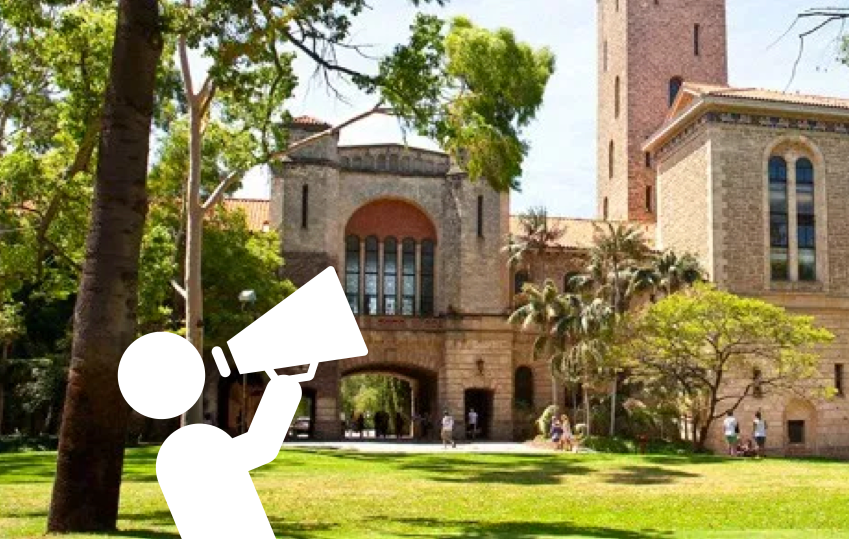Back in February last year, I attended a consultation session for students of UWA, which drew some interesting discussion from students, not least due to its instigating event in the previous year – I refer, of course, to the now notorious attempt to speak on university grounds by the controversial, misogynistic, homophobic and transphobic Australian Family Association, which drew much criticism at the time.
It’s probably fair to say that quite a lot has happened since then, but the university has finally emailed out to all students, as of Tuesday, its finalised policy on the matter, the ‘UWA Code for the Protection of Freedom of Speech and Academic Freedom.’ It’s quite the mouthful, but I’ve dug through it so you don’t have to – here are the highlights:
The documents starts out with what seems like a strong affirmation of freedom of speech, acknowledging that the university is of course bound by laws above its own. I’m glad to see it stress that the university should not penalise students or staff for exercising their right to either freedom of speech or academic freedom, given that precisely such an event occurred in 2015 under Vice Chancellor Paul Johnson. The protections that it enshrines, then, are stronger than we have had previously.
However, whether or not something gets to count as appropriate free speech is where things become interesting. The university notes that speech may be restricted in accordance with its “duty to foster the wellbeing of students and staff,” which it defines as including potential discrimination as defined by law, as well as general humiliation and intimidation. However, it specifically adds that “feeling offended or shocked or insulted” does not contravene this duty. To me, this seems to leave the area deliberately vague, such that the “Freedom of Expression Panel” that will be established can mediate issues on a case by case basis without risk of being harmed by policy (although its role is only to advise, not to legislate). Whilst this may be the best solution given the difficulty in trying to pin down anything more precise re discrimination and harm to the student and staff body, it does potentially give a great deal of authority to a panel of just five individuals. Crucially, three members will be appointed by the Vice Chancellor, including the Chair, which does not sit comfortably with me given some of the past events that this policy is supposed to be providing a solution to.
Let’s talk about those past events. Firstly, the university has made some clarifications around its power to make external speakers clarify whether they were invited or merely booked a venue, and its power to have them comply with that above duty to foster wellbeing. More interestingly, however, is the note that the university may “refuse permission… where the content of the speech is or is likely to involve the advancement of theories or propositions which purport to be based on scholarship or research but which fall below scholarly standards to such an extent as to be detrimental to the University’s character as an institution of higher learning.”
Now to me, this seems a clear jab at the events of 2018 – so, no more bigotry wrapped in pseudo science for UWA? Just so long as the panel controlled by the Vice Chancellor agrees. Again, given the extreme reluctance of the university executive to take a stance two years ago, I remain hopeful, but not entirely at ease.
There are some other interesting takeaways from the document, including an exhortation for the university to minimise any conditions attached to donations and arrangements around freedom of speech and academic freedom. This might echo the heated discussions surrounding the Ramsey Centre last year, but is a sensible provision in any case. The last key point is that the document also indicates that students should be able to be informed of course content prior to enrolment. I’d be curious to know how many of us feel that they’re currently adequately engaged with in that way.
Overall, it’s certainly better to have a policy on this than not – and there is always the opportunity to amend it, as well. I would like to see the Freedom of Expression Panel perhaps a little more balanced, but then again, as we’ve seen in the past, the student and staff bodies are more than happy to express their displeasure regardless of whether they have been consulted for advice. In the event of another large and controversial incident, I’m sure they will again.
Words by Elanor Leman

